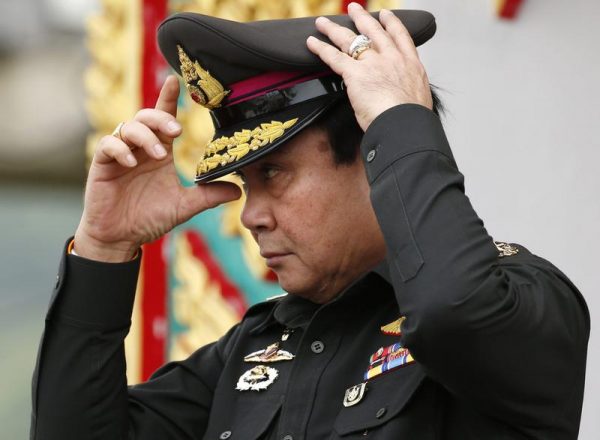While policy directions may be clearer and more expeditious than under previous elected governments, Thailand’s military rulers are likely to be ill-equipped to handle the structural challenges facing the Thai economy. Making do with the coup for now is understandable for business, but it behoves corporate leaders to reflect on whether the Thailand they need for future growth is the Thailand that is emerging from the coup.
It is clear that the generals need economic growth to justify political legitimacy.
Immediate post-coup actions intended to stimulate domestic confidence and consumption include a US$3 billion payment owed to farmers from a rice-pledging scheme, the imposition of price caps on key consumer products and a green light for infrastructure investment worth US$75 billion over the next eight years. To address foreign investors’ concerns, General Prayuth Chan-ocha, leader of the self-proclaimed National Council for Peace and Order (NCPO), has established himself as head of the country’s Board of Investment, with the expressed aim of clearing a backlog of applications for foreign investment projects of around US$22 billion.
The NCPO also puts economic reform high on its priority list. Among the key economic issues for a proposed National Reform Council, to be set up by early October, are lofty goals to reform the tax system, industrial structure, commercial practices and the country’s inadequate logistical networks. Economic reform objectives spread far and wide, embracing state-owned enterprises as well as private businesses. The newly established State Enterprises Policy Commission, also known as the Super Board, will scrutinise and supervise Thailand’s remaining 56 state-owned enterprises, whose combined assets are valued at more than US$360 billion, with a brief to turn them from inefficient fat cats into lean and mean felines.
The military’s penchant for interventionism in economic matters dates back to the 1980s, when a ruling coalition comprising the military and government bureaucrats successfully implemented a manufacturing-driven and export-led economic development policy. By keeping macroeconomic fundamentals strong — with low inflation, a sound fiscal policy, manageable external debt and a low current account deficit — the soldiers and technocrats managed to make Thailand part of East Asia’s economic development miracle. The foreign investment-led transformation of the predominantly rural economy into a production and export base for heavy industries was the formula that led Thailand to double-digit economic growth in the late 1980s.
But can Thailand turn back the clock to that era and still survive and thrive in the age of twenty-first century globalisation? The 1997 Asian economic crisis, and the slower growth that Thailand achieved in the following decade, exposed some fundamental shortcomings in the country’s economic infrastructure. Abundant resources and the availability of unskilled labour were sufficient for the low-cost and low value-added manufacturing that propelled Thailand’s initial economic development. But what Thailand needs now is to upgrade itself into a prime location for more value-added business activities. That will require a stronger and more transparent legal and governance system, better physical infrastructure, a more skilled labour force and a stronger technological base among domestic businesses.
Without these more sophisticated factors of production, Thailand risks being stuck in a middle-income trap of rising costs and stagnant productivity growth as it fails to move into the higher value-added and knowledge-based activities of the global industries it has served as a low-cost supplier base.
Driving Thailand forward in this globalised economic environment would be a challenging task for any government. It will be harder still for the current military regime. Thailand needs not just physical, but institutional infrastructure. While high-speed trains and advanced telecommunications systems are welcome, a strong and independent institutional mechanism that allows for checks and balances is equally and sorely needed. At the same time, the Thailand of the twenty-first century needs an ethos of freedom of expression that embraces analytical and critical debates on all issues that matter to Thais.
It may still be too early to say what the long-term effects of the coup will be. But there is scant historical evidence of a positive correlation between unaccountable power and enlightened governance. While the business community has conspicuously endorsed the moral authority of the coup, this initial optimism may be misplaced. Longer-term and more sober analysis may suggest that the Thailand that can foster growth in the twenty-first century is less likely to emerge under a military regime than under a pluralistic one.
Pavida Pananond is associate professor of international business at Thammasat Business School, Thammasat University, Bangkok.
A version of this article was first published here in Nikkei Asian Review.

